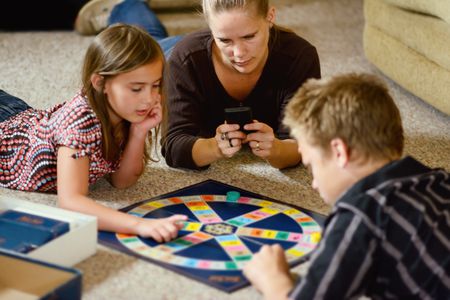
Adult Attitudes About Play
The Power of Play, Part II
“In every real man a child is hidden that wants to play.”
Friedrich Nietzsche
Ushering in 2019 last month with a discussion around resolutions and intentions, I turned to some friends and colleagues at a social function and asked, “When was the last time you played, just for fun?” Since we’re all creative in different ways, I secretly predicted the responses. I was taken by surprise to hear most of them say that playing ‘just for fun’ (complete with air quotes) was rare.When they asked me in return, I had to admit that playdates showed up on my calendar far less often then work obligations and social commitments.
We never lose the basic desire to play—to be freely creative and spontaneous—but as we mature, that inner fire withers to an occasional flicker and we focus instead on grownup responsibilities to nourish our mind and spirit. At some point, however, we realize this change in perspective and priorities provides only half of our needed nourishment and development. Simple solution, right? Denounce our responsibilities, toss out our briefcases, and head for the sandbox. Unfortunately, it’s not that easy. Removing the roadblocks to play requires confronting some very strong core beliefs about it. Here are 3 of the biggest barriers keeping us from spending more time on the playground.
F = FRIVOLOUS
Webster’s Dictionary defines frivolous as “lacking in seriousness or maturity.” Indeed, this is likely the very foundation of our belief system about play: it’s a trivial pursuit. From the moment we start school we’re programmed to sacrifice play for meaningful and consequential pursuits. Recess and recreation are just a small fraction of our daily schedule, as most of our time is devoted to more serious (academic) activities. But if we observe children at play, their level of focus, dedication and commitment is anything but frivolous.
“Man is most nearly himself when he achieves the seriousness of a child at play.”
– Heraclitus
Interestingly, while they’re decades past childhood, many of my top-level executive coaching clients admit to being far more present and involved in their play pastimes and passions than they are at their jobs. We don’t need to renounce our responsibilities in order to play, we just need to remind ourselves that play is a serious pursuit too.
U= UNPRODUCTIVE
As a child, I spent hours role-playing, improvising, and performing skits with my cousins and siblings. Often the nearby adults would ask me, “Why don’t you stop that nonsense? Play a real game, read a book, or go to the park.” To them, certain forms of play were more worthwhile and productive. Productivity is a hallmark of adult thinking, and today our adult national culture is so hyper-focused on achievement that we have come to revere productivity and exhaustion as badges of honor. This has not only bred a greater reluctance for play, but it also has created over-scheduled, over-involved and over-indulged children whose lives are filled with purposeful programming instead of free play. We would be well served to relinquish this belief and realize the very qualities that define play are those that make it worthwhile.
N = NEEDLESS
Most of us would agree that play is absolutely crucial to child development. In fact, play is so necessary for optimal child development that it has been recognized by the United Nations High Commission for Human Rights as a right of every child.Unfortunately we mistakenly believe that our need for play ends with the onset of adulthood; that somehow we no longer require or will benefit from the kind of development and growth that play provides. Wrong. Play is as necessary to our continued development as nutrition, exercise or rest. In fact, because play’s benefits are so varied and potent, its importance may actually increase as we age, rather than decrease.
By examining our mental roadblocks, we can expand our limited thinking and experience personal and professional growth through play. Even with childhood behind us, we remain in need of the gifts that play offers—from innovative thinking to relationship management. In the next installment you’ll discover an array of play’s specific and significant benefits that we desperately need as we navigate the congested and stressful waters of adulthood.
